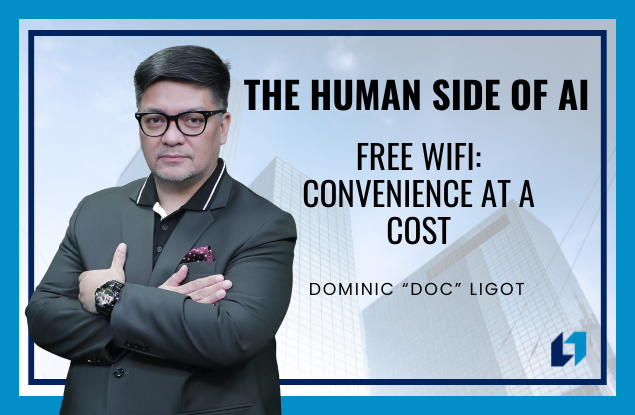Walk into any café, hotel, or airport lounge, and the first question most people ask is not about the menu or facilities, it’s “Do you have WiFi?” Free connectivity has become a default expectation in our digital economy, reflecting our deep reliance on mobile devices, laptops, and always-on internet. Manila has even rolled out public kiosks, branded Iskonek/MNL Konek, that combine free WiFi, landline calls, and charging ports.
This convenience, however, comes with invisible costs. Public WiFi networks are not just pathways for data, they are open doors for hackers. Much like entering a crowded room where everyone pretends not to see each other, connecting to public WiFi means sharing space with strangers, some of whom may be watching closely.
How Hackers Exploit Public WiFi
While most internet traffic today is encrypted, hackers know patience pays off. There are several ways they exploit unsuspecting users:
- Unsecured websites (HTTP only): Login credentials, personal details, and even photos can be intercepted in plain text.
- Shared folders and open ports: Office laptops often carry shared drives or apps that can be quietly accessed.
- Rogue WiFi hotspots: Hackers can set up fake access points with names similar to legitimate ones. Once connected, a victim’s data can be rerouted, exposed, or stolen.
The financial implications are obvious. A stolen password isn’t just about losing access to social media, it can mean compromised online banking accounts, unauthorized credit card transactions, and identity theft. In an economy where digital transactions are surging, trust is currency. And trust can evaporate quickly if consumers feel unsafe online.
Practical Steps for Users
Completely avoiding public WiFi is unrealistic, but risk can be minimized:
- Confirm the official WiFi name before connecting.
- Avoid online banking or sensitive logins on public networks.
- Forget networks after use to prevent auto-reconnect.
- Stick to sites with “https” encryption.
- Consider using a Virtual Private Network (VPN) or browsers like Brave with built-in protections.
Think of these measures as low-cost insurance for your data. For businesses, especially those in finance, arming employees with security tools and awareness training should no longer be optional, it’s risk management.
The Policy Dimension: Cybersecurity Laws in the Philippines
Beyond personal responsibility, systemic safeguards are needed. The Philippines, with its fast-growing digital economy, is increasingly a target for cyberattacks. Recent legislative discussions signal hope: cybersecurity laws that aim to strengthen digital defenses, protect consumers, and hold bad actors accountable are gaining momentum.
Key proposals include:
- Establishing clearer penalties for cybercrime.
- Creating stronger coordination between public and private sectors on digital threats.
- Mandating higher security standards for financial institutions and critical infrastructure.
For investors and financial institutions, this is more than regulatory compliance, it’s about stability. A robust cybersecurity framework reassures consumers, encourages digital adoption, and protects the integrity of financial transactions. As fintech, digital banking, and e-commerce continue to expand in the Philippines, a legal backbone against cybercrime could be the catalyst for sustainable growth.
No Free Lunch
The lesson is simple: free WiFi is never truly free. The “payment” may come in the form of your personal data, your login credentials, or even your financial security. For individuals, caution is the best defense. For businesses and regulators, building trust in the digital economy requires investment in both technology and policy.
In a world where data is the new oil, securing the pipelines, both at the personal and national level, may be one of the smartest financial strategies of all.
Dominic “Doc” Ligot is one of the leading voices in AI in the Philippines. Doc has been extensively cited in local and global media outlets including The Economist, South China Morning Post, Washington Post, and Agence France Presse. His award-winning work has been recognized and published by prestigious organizations such as NASA, Data.org, Digital Public Goods Alliance, the Group on Earth Observations (GEO), the United Nations Development Programme (UNDP), the World Health Organization (WHO), and UNICEF.
If you need guidance or training in maximizing AI for your career or business, reach out to Doc via https://docligot.com.
![]()



